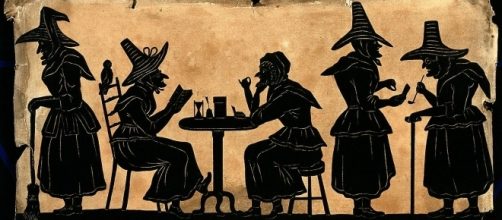Calling all witches! The Chicago Newberry Library is asking for help with the translation of a few manuscripts. Three 17th century texts pertaining to charms and magic are waiting to be transcribed from Latin and Old English. The library is making an effort to allow the general public to have access to materials that they might not have had otherwise.
A Ph.D in history is not necessary. Anyone with experience in the magical arts is welcome. Some pieces of the texts have already been translated, but there is plenty left to go around in this crowdsourcing project.
'The Book of Magical Charms'
The three books are handwritten in both Latin and Old English. Experts have already found that one of the manuscripts, "The Book of Magical Charms," was written by two English witches in the 1600's. It contains vast knowledge on how to cheat at dice, converse with spirits, and soothe menstrual cramps. It even holds instruction on how to activate the Seal of Solomon.
This seal was originally thought to be a ring and was written about by several Arabian scholars in the past. The ring was said to be made of brass and iron with four different stones that represented the four elements. The Seal of Solomon is commonly referred to now as the Star of David.
The star is a prominent symbol in witchcraft and the magical arts.
Appearances of the pentagram date back to ancient Greece and even early Babylon. Symbols such as the star can be found throughout the page of this 17th century manuscript.
The Salem Witch Trials
The other two texts that are awaiting transcription are “Case of Conscience Concerning Witchcraft” and "The Commonplace Book."
The first was written during the Salem Witch Trials by a Puritan minister named Increase Mather. The text condones and defends the executions of witches, but also questions some of the evidence that was presented to the courts. Particularly, Mather criticized the admittance of "spectral evidence" to the courts. Witnesses had claimed that they saw a witch in a dream or vision, and this was enough to convict someone of witchcraft.
"The Commonplace Book" was written by several authors in both Latin and Old English. It contains religious and moral questions, along with passages from well known Christian writers.
Researchers at the Newberry Library hope that the translation of the three texts will provide more insight into the role of religion in public and private lives during the 17th century. The manuscripts hold 522 pages with 170 still left to decipher.
Once the project is completed, they will be included in an exhibit entitled, "Religious Change: 1450-1700." This collection will be open to the public in September.


